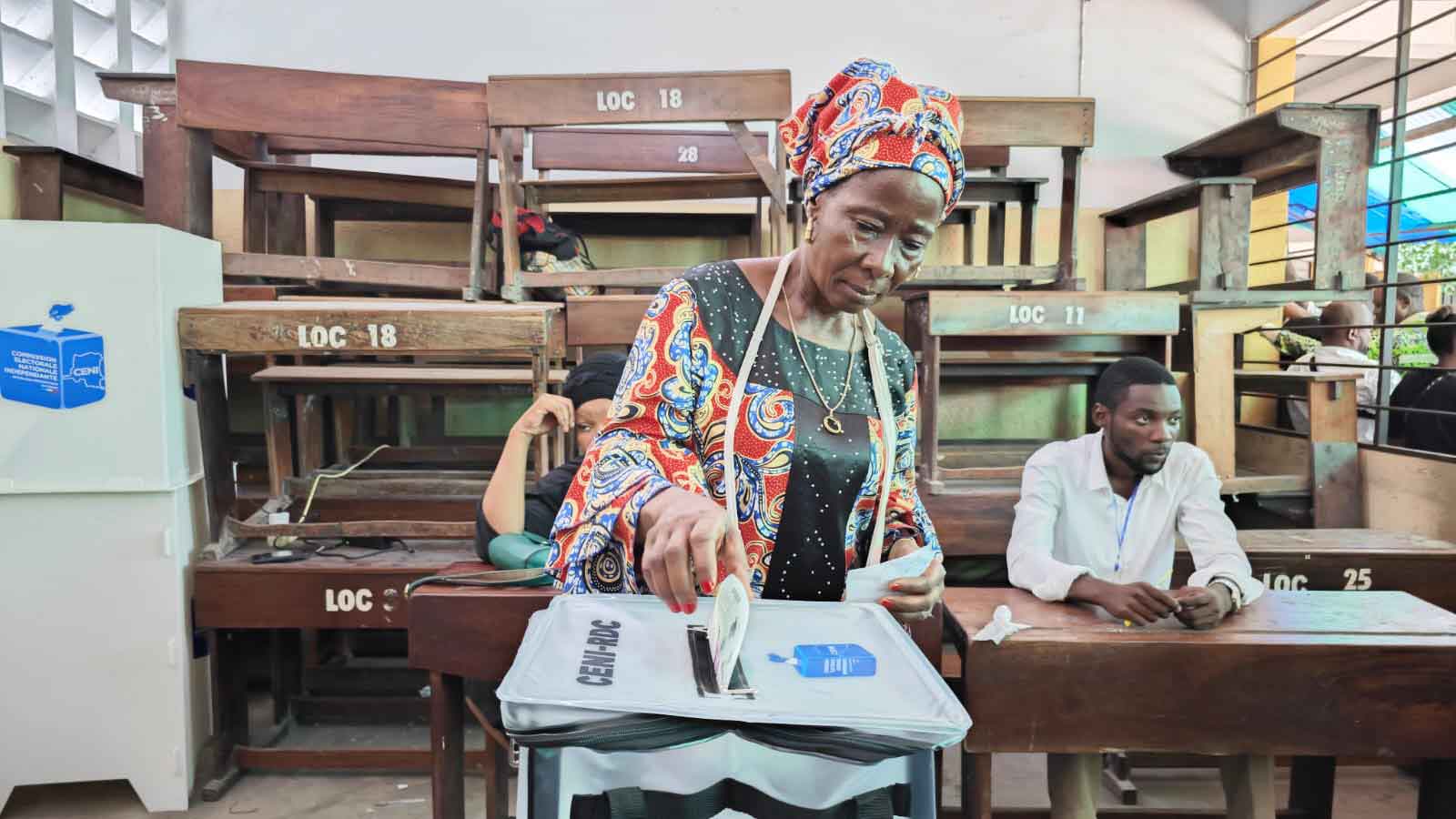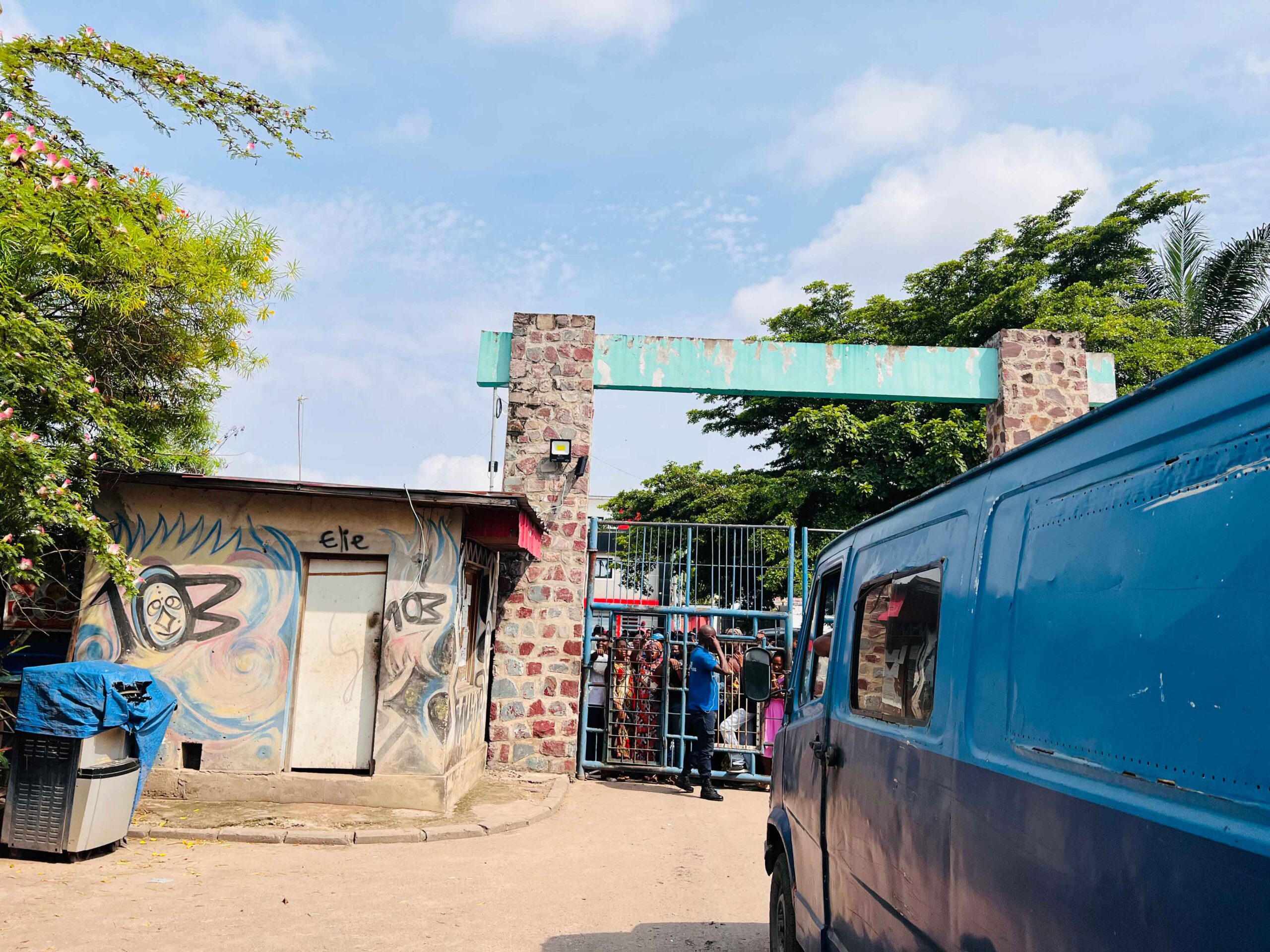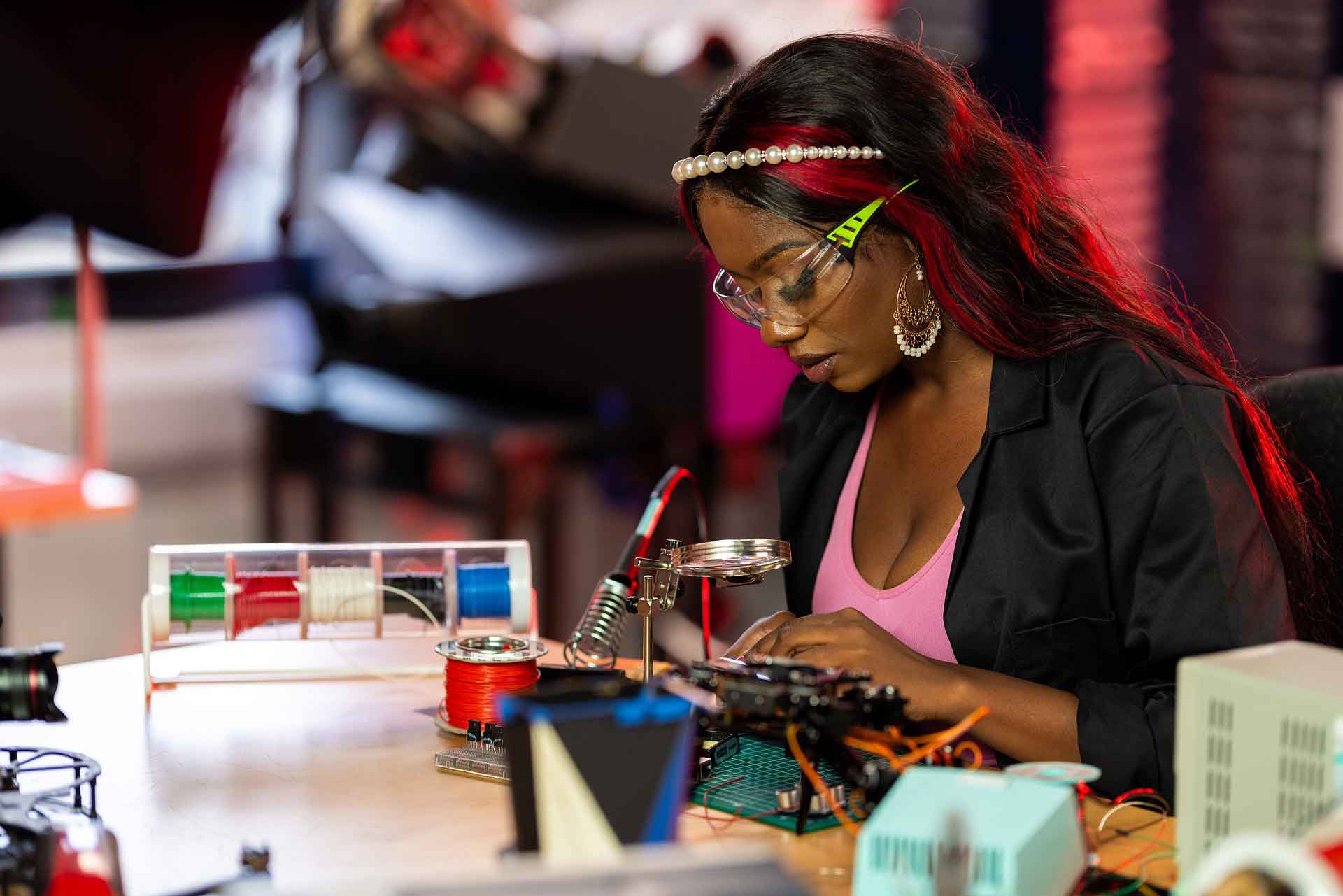On 20 December 2023, the Democratic Republic of the Congo (DRC) held general elections. The HSRC Africa Institute of South Africa is committed to contributing towards knowledge generation of African democratic and electoral processes. In line with this goal, representatives from the institute embarked on an election observation mission to the DRC in La Gombe, downtown Kinshasa. In this report, we share some key challenges identified during the elections. This article focuses on the experiences of people who are differently physically abled, especially in the case of DRC, where the impact of several polio outbreaks is apparent. By Dr Palesa Sekhejane, Bonginkosi Ngwenya and Kutlwano Mohale.

A Congolese woman votes on 20 December 2023 at a polling station in Matonge, one of the oldest districts of Kinshasa. Photo: MONUSCO Photos, CC BY-SA 2.0
In 2014, the Swedish International Development Cooperation Agency (SIDA) published a report on the status of people living with disabilities in the Democratic Republic of the Congo (DRC). It showed that the main causes of disability related to insufficient vaccination programmes; parents’ lack of knowledge about common childhood diseases and treatment; landmine-caused accidents; traffic vehicle accidents; leprosy; poor hygiene; and improper medication.
The African Union’s categorisation of people living with disabilities and other vulnerabilities is based on the following: having parts of their body mutilated or amputated; visual and hearing impairments; psychosocial or intellectual limitations; limited motor functionality; and impairments caused by albinism, age and pregnancy.
Arguing as to why African states should ratify the African Disability Protocol, Elim Shanko describes a situation in Africa where people with disabilities face intersectional marginalisation owing to poverty and gender discrimination, and says few countries in Africa protect their rights through legislation. In the 2006 general elections (National Democratic Institute 2023), only 2% of people with disabilities voted. This highlighted the importance of programmes by DRC organisations such as the National Democratic Institute, which works towards empowering people with disabilities to engage in politics and to become full members of society so they can have a say in decisions that affect their daily lives.
The United Nations Convention on the Rights of Persons with Disabilities (UNCRPD) of 2006 is the first global, legally binding human rights treaty that recognises persons with disabilities as capable of claiming universal rights and making decisions for their lives based on their informed consent, including participating in democratic processes such as elections. The principles of the UNCRPD include accessibility, i.e. infrastructure provision; assistive devices such as braille materials; reasonable accommodations; sign language interpreters; and awareness and sensitisation on election campaigns.
According to Shanko, 47 African countries are party to the treaty, including the DRC, which signed the UNCPRD in 2014. In 2019, Minister Irène Esambo Diata – who lives with a disability herself – was appointed the first-ever minister for people living with disabilities in the DRC. As one in eight individuals in the DRC live with vulnerabilities, this was a significant move to integrate such people into society and create conditions for them to participate in public decision-making.
In January 2023, during the run-up to the election, Esambo Diata urged people living with disabilities and other vulnerabilities to register to vote to obtain their voter cards, and to run for the elections – in institutions such as municipal councils, and national and provincial assemblies – to defend their cause as a crucial part of social life. She also stressed that people living with disabilities are entitled to specific voting measures and procedures as per Article 18 of Organic Law No. 22/003 of 3 May 2022 (Agence Congolaise de Presse 2023), which protects their rights.
It stipulates: ‘A person with a disability has the right to specific voting measures and procedures. The State shall provide appropriate, accessible, easy-to-understand and easy-to-use electoral equipment and materials to guarantee the full exercise of the right to vote by persons with disabilities.’ Despite such advances, the HSRC election observation mission team noted inconsistencies in the aspirations of the government, and what took place.
What was observed
Based on predictions and expectations about how the elections would play out, election day was marred by several challenges, such as the late opening of polling stations and various irregularities observed in the voting procedure.
With regard to equal participation in the elections, the HSRC team witnessed obstacles to the participation of voters, particularly for people with disabilities. Infrastructure access in the DRC is a challenge, and citizens with disabilities experienced difficulties, as some polling stations made no provision to accommodate people with physical, visual or hearing differences, or for the elderly.

HSRC researchers arrive at a voting station in La Gombe, downtown Kinshasa in the DRC where they were on an election observation mission in December 2023. Photo: HSRC
In some polling stations, there was no provision for a sign language electoral lexicon for voters with hearing impairments, wheelchair ramps were absent and, in some cases, the team observed voters on crutches having to use staircases to enter voting rooms. One voting station was packed with elderly women who had been sitting on the ground in the hot sun for an extended period. All these observations were indicative of poor preparation for, and consideration of, voters with disabilities and other vulnerabilities.
Recommendations for the next elections
Based on the above reflections on the inclusivity of the 2023 DRC elections, the HSRC election observation team recommends providing shaded areas with seating to accommodate voters with disabilities and other vulnerabilities. Queue marshals should also form part of the team of election officials to help guide and prioritise them.
Another recommendation is for the election organising committee to source and employ people who are specifically trained to aid people with various disabilities, and treat them with dignity to ensure their full participation in the elections. This is with the recognition of the Organic Law No. 22/003 of May 3, 2022, on the protection and promotion of the rights of people, indicating that a sign language electoral lexicon must developed by the Independent National Electoral Commission, and the recruitment of two advisors (hearing impairment specialists) in charge of ensuring the inclusion of persons with disabilities in the electoral process.
For example, they should ensure that a sign language electoral lexicon is present for voters with hearing impairments, as per the June 2022 amendment of Law No. 06/006 of March 9, 2006, on the Organization of Presidential, Legislative. Lastly, the incumbent, the electoral commission and other partners involved in the organisation of elections should invest in upgrading existing infrastructure in La Gombe to ensure full inclusion and participation of all voters by installing ramps where necessary and employing sufficient lighting in the polling stations.
Such investments will benefit the electorate in the long term – because school buildings were primarily used during these elections, investing in them in this way will be more conducive to effective teaching and learning, and offer better conditions for future voter registration and voting.
Conclusion
In closing, while provisions were made for the inclusion of voters with disabilities and other vulnerabilities during the 2023 elections, the HSRC election observation team was not able to report on them positively. This finding is also supported by a lack of reporting about the implementations made to accommodate this voter category. However, following the creation of the ministry in charge of ensuring the social and political inclusion of people with disabilities and other vulnerabilities in the DRC, the HSRC team hopes to see improvement during the administration of President Félix Tshisekedi.
Authors:
Dr Palesa Sekhejane, the acting executive head, Bonginkosi Ngwenya, a master’s research trainee, and Kutlwano Mohale, an HSRC-DSI intern – HSRC Africa Institute of South Africa


